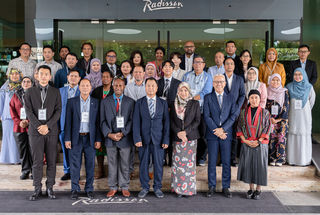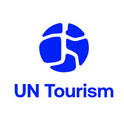UN Tourism Spearheads Executive Training on rural Development in Asia and Pacific
As part of its focus on rural development, UN Tourism has concluded an executive training session for sector leaders from across the Asia and the Pacific region.

Held in Bandar Seri Begawan, Brunei (5-6 August 2024) the two-day titled ‘Practical Approach to Strategy and Product Development’ event brought together officials responsible for rural tourism strategy and product development from National Tourism Authorities (NTAs) and National Tourism Organizations (NTOs) across the region.
Empowering Tourism Leaders
In a rapidly changing world, and with the growing demand for nature-based activities and tourism in rural areas, skills development is essential. The executive training supports and provides managers with applied knowledge to develop, implement, and measure strategies on rural tourism and how to create, develop, and market tourism products and destinations on a national and international scale. Knowledge and skills in these areas were further enhanced with practical tools including matrices, models, and indicators, in addition to best practices, case studies, and applied exercises.
The training attracted over 33 participants from 8 Member States. The two-day event focused on strategic planning, product development, sustainable tourism practices, and community-based tourism. A field trip provided participants with the opportunity to apply their learning in real-world contexts, reinforcing the training objectives and enhancing their understanding.
Broad Participation and Practical Learning
This training, which is part of our Tourism for Rural Development Programme, underscores our commitment to enhancing rural development through effective tourism strategies and innovative approaches. By upskilling national tourism administrations, we are advancing our mission to foster sustainable tourism and support rural communities. Sandra Carvao, Director, Market Intelligence, Policies and Competitiveness at UN Tourism
This executive training is a vital step in equipping our Member States in the Asia-Pacific region with the necessary skills and knowledge to develop sustainable and resilient rural tourism strategies. By investing in the capacities of our tourism officials, we are fostering inclusive growth and empowering rural communities across the region. Harry Hwang, Director, Regional Department for Asia and the Pacific, UN Tourism
This training programme exemplifies Brunei Darussalam’s commitment, alongside UN Tourism, to advancing rural tourism development across the Asia-Pacific region. It underscores our dedication to providing robust support and resources to Member States, fostering sustainable and inclusive growth within our communities. Salinah Salleh, Acting Director of Tourism Development Department from Brunei Darussalam
UN Tourism for Rural Development Programme
The UN Tourism for Rural Development Programme was designed with the vision of making tourism a driver of rural development and well-being. It aims to advance the role of tourism in valuing and safeguarding rural territories along with their associated landscapes, knowledge systems, natural and cultural diversity, local values, and activities. The Programme also aims to promote innovative and transformative approaches for the development of tourism in rural destinations that contribute to the three pillars of sustainability – economic, social, and environmental – in line with the Sustainable Development Goals (SDGs).
In May 2023, UN Tourism hosted a similar executive training for the Middle East in its Regional Office for the Middle East in Riyadh, Saudi Arabia.
About UN Tourism
The World Tourism Organization (UN Tourism), a United Nations specialised agency, is the leading international organisation with the decisive and central role in promoting the development of responsible, sustainable and universally accessible tourism. It serves as a global forum for tourism policy issues and a practical source of tourism know-how. Its membership includes 166 countries, 6 territories, 2 permanent observers and over 500 Affiliate Members from the private sector.
Media enquires: [email protected]
UN Tourism Communications Department
+34 91 567 8100
UN Tourism
